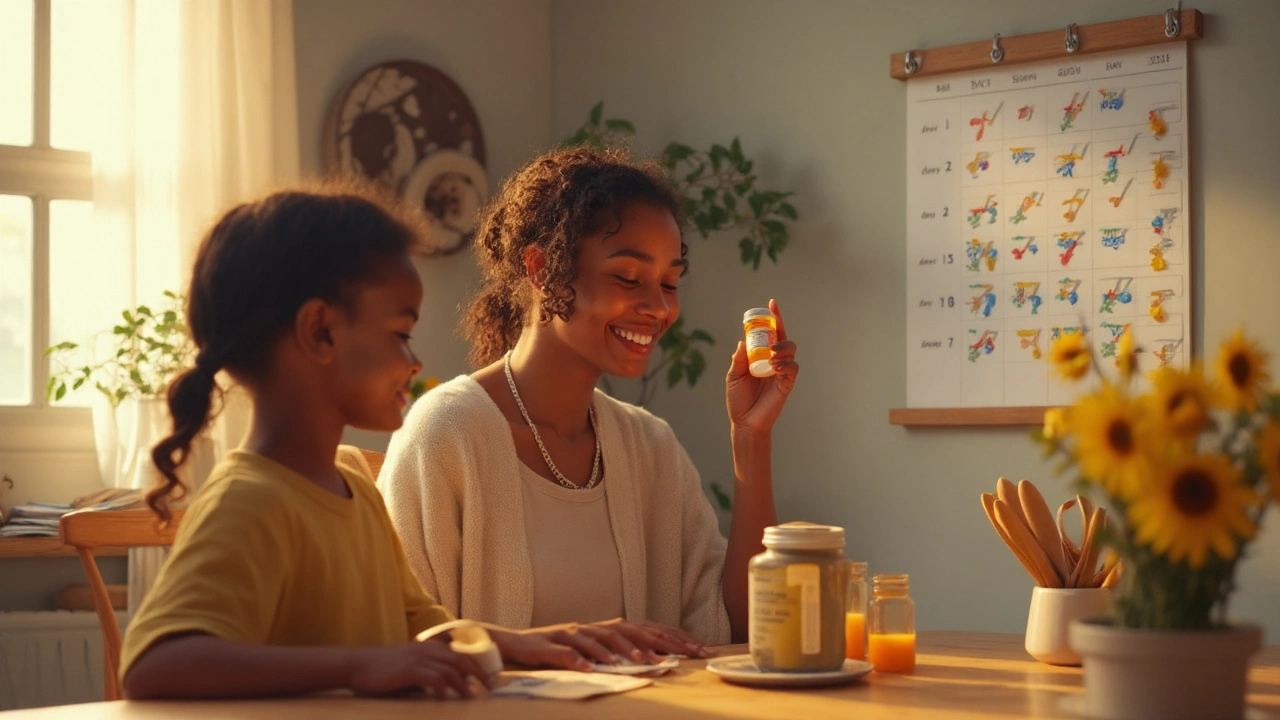Medication Course Completion: How to Finish Your Prescription Right
Ever started a medicine and stopped early because you felt better? That’s a common slip, but it can undo the whole benefit of the drug. Finishing a medication course isn’t just about following a doctor's note—it’s about protecting your health and preventing future problems.
Why Completing Your Medication Course Matters
When you stop a drug too soon, the infection or condition you’re treating can bounce back, sometimes stronger. For antibiotics, incomplete use can create resistant bacteria that are harder to kill later. For chronic meds like blood pressure pills, missing doses can spike your numbers and raise the risk of heart issues. In short, finishing what you start keeps the treatment effective and guards against setbacks.
Even if you feel great, the medicine might still be working in the background. Some side effects only appear after a few weeks, so stopping early can hide those clues and leave the underlying problem unchecked. Think of it like a marathon: you don’t quit halfway just because you’re ahead of the pack.
Practical Steps to Stay on Track
1. Set a Reminder System – Use your phone, a pillbox, or a simple alarm. Treat the reminder like an important meeting; you wouldn’t miss that, right?
2. Link the Dose to a Daily Habit – Take your medicine with something you already do, like brushing your teeth or morning coffee. The habit cue makes it automatic.
3. Write It Down – Keep a small log in a notebook or an app. Tick each dose off; visual progress is motivating.
4. Know the Side Effects – Read the leaflet or ask your pharmacist what to expect. If something feels off, call your doctor instead of stopping on your own.
5. Ask About Shorter Regimens – Some newer antibiotics or antivirals have shorter courses that work just as well. Talk to your prescriber if you’re worried about staying on a long schedule.
6. Plan for Refills – If you need more pills, set the refill request a few days before you run out. Running out is a classic excuse to skip.
7. Involve a Supporter – Let a friend or family member know you’re on a medication schedule. A quick text from them can be the nudge you need.
8. Use a Medication Calendar – Print a simple calendar and mark each dose day. Seeing a full month of completed days can boost confidence.
9. Stay Honest with Your Doctor – If you’re struggling with cost, side effects, or just plain forgetfulness, tell them. They can adjust the dose, switch to a better‑tasting option, or suggest a different dosing schedule.
10. Celebrate Small Wins – Finished a week? Treat yourself to a favorite snack (if it doesn’t clash with the meds). Positive reinforcement helps the habit stick.
Remember, completing a medication course isn’t a chore—it’s a tiny daily effort with big health payoffs. By setting reminders, linking to habits, and staying informed, you protect yourself from relapses, resistant bugs, and unnecessary doctor visits.
If you ever feel unsure, pick up the phone and ask. A quick chat can clear doubts and keep you on the right track. Finish strong, feel better, and keep your health on the win‑column.

Why Completing Your Medication Course Is Crucial: Risks, Benefits, and Tips
Discover why finishing a medication course matters, how it prevents resistance and relapse, and practical ways to stay adherent.
Read More